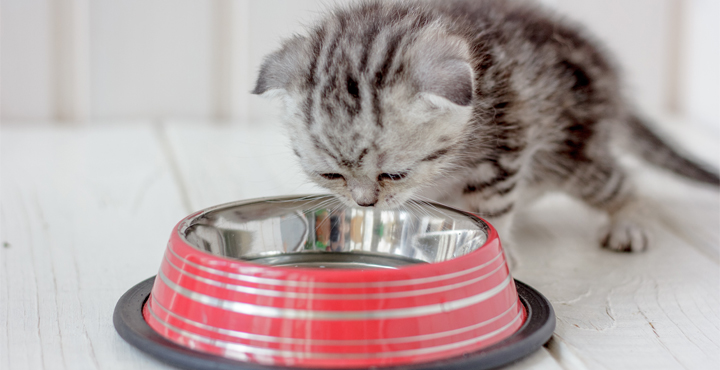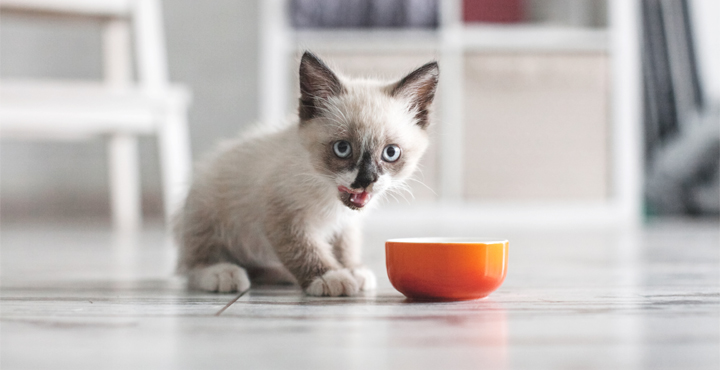
Kittens are adorable. How can you not fall in love with those cute, friendly bundles of fluff? What’s more, welcoming a kitten into your home is just the first part of an exciting journey. Within a year, that inquisitive little furball will be fully-grown. So, before you take that first step, make sure you’re ready and willing to own an adult cat.
Do I already have other pets at home?
Kittens are inquisitive and sociable. But cats have independent spirits, so the older they get, the more they’ll want their own space – especially quiet, cosy corners where they feel safe. When you’re introducing your new kitten to your other pets, take your time, and make sure that each has their own feeding, sleeping and toilet areas. If you have an older cat, for example, expect a settling-in period while the long-time resident gets used to the new kid on the block.
If your pets don’t seem to be making friends, don’t worry. Cats don’t always form close social bonds with other pets, or with cats from outside their litter.
You’ll find more details in our article Introducing other cats and animals.
Do I work long hours or travel a lot?
Kittens can get distressed if they’re left home alone for long periods. What’s more, their tiny tummies mean they need small, regular meals every few hours, throughout the day.
If your lifestyle means you can’t avoid leaving your kitten alone, consider adopting an older cat who’s more independent. You might even adopt a pair from the same litter – that way, each cat will enjoy the other’s company.
If you’re regularly away from home, make sure there’s someone to care for your kitten in your absence. Perhaps you have a cat-friendly neighbour who’ll feed and play with your kitten several times each day (most cats prefer the familiar surroundings of their own home). Another option is to hire a professional cat-sitter.
Inside or out?
All kittens should be kept indoors until they’re fully vaccinated. Neutering is also recommended before puberty. Unneutered male cats are more likely to stray or get into fights with other males. Females can become pregnant at just 4 months old, which is generally considered too young. Ask your vet when is the right time to have your cat neutered.
If your home is close to a busy road – or if you live in a flat or have no garden – you may prefer to keep your cat indoors long-term. Even if you do, you can still allow them to get fresh air by setting up a secure, exterior cat run. Cat runs usually include perches, and areas where your cat can shelter from the weather.
If you do choose to do keep your cat indoors, remember that a fit, happy cat needs lots of stimulation. Be sure to provide plenty of toys, scratching posts or mats, and make a point of playing, stroking and interacting with your cat every day. It’s also worth remembering that indoor cats are naturally less active, so they’ll need a little less food each day to keep them sleek and healthy.
But the most important consideration in the indoor/outdoor debate is your kitten’s personality. If your kitten has come from a feral or semi-feral litter – or is already used to being outside – an indoor lifestyle may not be the right thing for them.
Remember that, indoors or outdoors, it’s vital to keep your kitten’s vaccinations up-to-date, and to take them to the vet for those all-important annual check-ups and boosters.
Am I planning to move to a new home?
Young or old, all cats like familiar surroundings. So moving to a new home can be very unsettling for a kitten. It may take them a while to adjust to their new home, especially if the environment is very different to what they've been used to.
If you’re planning to move house in the near future, it might be worth waiting to adopt your kitten until you’re settled into your new home. If this isn’t an option, don’t worry. Just give your kitten a safe place to call their own in the new surroundings, and provide plenty of reassurance throughout the move to keep them calm and happy.
Financial commitment?
On average, caring for a healthy kitten costs between £500 and £700 each year – that covers food, insurance and basic veterinary care.
Kittens are inquisitive and sociable.
Within a year, that inquisitive little furball will be fully-grown. So, before you take that first step, make sure you’re ready and willing to own an adult cat.













